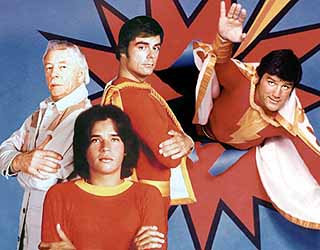Disclaimer: The statements and opinions expressed in this article are those of the author(s) and do not necessarily reflect the positions of Thoughtworks.

Do you remember the Saturday morning TV "Shazam/Isis Power Hour"? Among the many wonders this show offered was young Billy Batson driving all over the US in a big recreational vehicle with his mentor, Mentor. Despite Mentor's presence, the two of them somehow continually got into difficult situations which prompted Billy to shout "Shazam!" and transform into Captain Marvel in order to save the day. I always think of "Shazam!" when mentoring comes up in conversation, and I can't help but get a momentary image of Mentor behind the wheel of the RV, eyes twinkling, but looking somewhat deranged.

Mentoring is a tricky business, and it is not for the faint of heart. Superficially, it's quite straightforward. You, the wise and senior person, make yourself available to Billy, a person of hidden talents and perhaps flowing brown hair, but nonetheless something of a punk, and give him sage advice in his times of need. He is grateful and respectful. You are modest, but you're still totally the one on the ball.
But what happens in real life?
Despite our best efforts, we often cannot help our mentees learning difficult lessons for themselves. Few people can actually learn from the experiences of others. But we keep trying, and become more humble as we go.
It turns out that "mentor" wasn't originally a verb. In Homer's literally epic "The Odyssey," Mentor is the name of the person Odysseus leaves in charge of his young son, Telemachus, when Odysseus goes off to the Trojan Wars. Eventually, Odysseus comes back, and gets young Telemachus to help him wipe out the many suitors who have come to court Penelope, Telemachus's mom. As part of this nuclear family defense plan, it turns out that Telemachus is actually strong enough to wield Odysseus's bow himself, but he tactfully refrains from doing so on his dad's signal, to ensure the appropriate happy ending to the story.
I'm not sure what Mentor was thinking as he observed this bit of byplay, but for me, part of the strength of being someone's advisor is that eventually the tables turn, and sometimes you learn more from your mentee than they learn from you.
This post is from Pragmatic Agilist by Elena Yatzeck. Click here to see the original post in full.
Disclaimer: The statements and opinions expressed in this article are those of the author(s) and do not necessarily reflect the positions of Thoughtworks.
